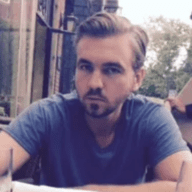It is easy to regard an individual rare disease as an affliction that only impacts a small number of people, but rare diseases affect hundreds of millions of people around the world. Paradoxically, it is not rare to be touched by a rare disease.
At the Data DIY workshop, hosted by Global Genes on October 25th, the main topics were the collection and dissemination of patient data. Acquisition, analysis, and deployment might seem simple in theory (especially compared to the complicated nature of research) but the execution is complex.
A sobering notion emerged as speakers described the uphill battle they faced in their quest for cures: the rare disease community is missing out on incredible opportunities simply because they are not making the best use of data. Between different foundations, institutions, and pharmaceutical companies, coordinating efforts within the realm of a specific illness is difficult. Sharing data and arriving at solutions across the world of rare disease as a whole, is barely existent.
Speakers shared about how different organizations can lose sight of the daily struggles and triumphs of those afflicted, because they become so focused on fundraising and research hurdles. There is a great need to connect communities with the parties conducting the research and development. “So much of your day to day is just paper and data, and so connecting that to the humanity, I think, is crucial,” observed Benjamin Prosser, Ph.D. Ideally, all parties would be collaborating across all rare diseases.
The layered and complicated nature of finding a cure can feel so immense that we lose sight of data coming directly from the people we work to save. These insights are right under our noses. They crop up on message boards and grassroots gatherings, and the first step towards integration is acknowledgment. Sometimes foundations and researchers climb higher and higher up the mountain of bureaucracy that they end up out of earshot of the very individuals they exist to cure.
The workshop helped organizations envision a shift from a whack-a-mole model of different groups attacking different diseases at a time to going after many diseases at once by coordinating efforts. While every disease has certain characteristics that are unique to that disease, many of these illnesses have more commonalities than they do differences. There is untold value in all of this data.
When it comes to useful research, work that takes years and ultimately saves lives, information dissemination can be inefficient. While patient advocacy networks might operate effectively within their own disease space, all of these groups need to share information with each other to accelerate the pace at which they all find a cure. When there is a failure to communicate, breakthroughs go unnoticed, efforts are needlessly duplicated, and patients spend more time suffering. The future of treatment rests in our ability to share data and work together.

